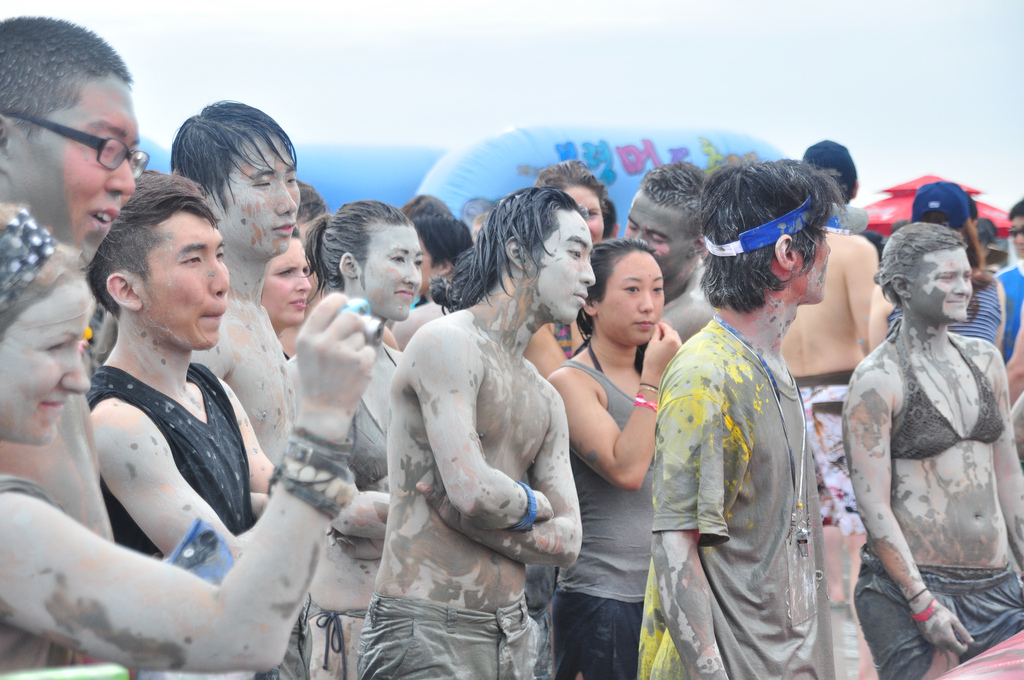Festivals in South Korea: Cause for Celebration
TIME : 2016/2/16 14:44:11

Get muddy at the Boryeong Mud Festival! Photo © Jordi Sanchez Teruel, licensed Creative Commons Attribution Share-alike.
South Koreans never need much of an excuse for a party, and the country’s calendar is crammed with festivals celebrating historical events, esteemed local produce, and even just the existence of a few places. They can be a lot of fun and often bring some much-needed attention and tourist dollars to the nation’s remoter corners. Here’s a list of a few of the higher-profile annual events and festivals in South Korea; check with the Korea Tourism Organization for additional and up-to-date event information.
- Hadong Wild Tea Cultural Festival (May): Held among the scenic tea plantations of the south, the first place tea was cultivated in Korea, this event allows visitors to sample and buy fine green teas from specialist producers and to study tea ceremonies and cultivation.
- Boryeong Mud Festival (July): The mudflats of the coastal city of Boryeong are said to be rich in minerals good for the skin, and thousands flock to the beach here every summer to slather themselves in the stuff in a variety of ways. Mud baths, mud wrestling, mud slides—the list goes on. This festival is one of the main events on the youngish expat crowd’s social calendar and tends to be pretty hyperactive and booze-fueled; the less party-inclined may want to give it a miss.
- Gangjin Celadon Festival (July/August): Korean ceramics have built a justifiably high reputation over the centuries, and this festival in the celadon production center of Gangjin is a good opportunity to view and purchase work from some of the country’s finest living artisans or try your hand at sculpting your own.
- Andong Mask Dance Festival (September/October): This event in the history-rich Andong area showcases Korea’s masked dance traditions, one of the country’s oldest forms of entertainment. It has grown more international in scope, with foreign troupes now regularly invited to perform.
- Chungju World Martial Arts Festival (September/October): A must for enthusiasts, this event draws practitioners of a range of martial arts from around the world who participate in lectures, demonstrations, and, of course, some no-holds-barred competition. This being South Korea, indigenous martial arts such as taekwondo receive top billing.
- Jinju Lantern Festival (October): The southern city of Jinju was the site of major Japanese sieges of Korea in the 16th century, and this festival commemorates the battles fought there. But the tone is far from martial; instead giant, colorful lanterns that depict a variety of scenes and landmarks from Korean history float down the city’s river in illuminated splendor. The festival also includes exhibits of lanterns from other countries and lantern-making programs.
- Busan International Film Festival (October): For a week or so Busan’s Haeundae Beach gives Los Angeles a run for its money as directors, acting talent, and financiers from throughout Asia and beyond flock to what has become the region’s premier film event. A busy screening schedule and crammed roster of parties and receptions add to the general buzz and make it easy to see why this festival seems to get bigger every year.
Excerpted from the Second Edition of Moon Living Abroad in South Korea.
